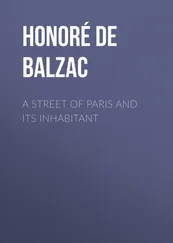Henry Edwards - Old and New Paris - Its History, Its People, and Its Places, v. 1
Здесь есть возможность читать онлайн «Henry Edwards - Old and New Paris - Its History, Its People, and Its Places, v. 1» — ознакомительный отрывок электронной книги совершенно бесплатно, а после прочтения отрывка купить полную версию. В некоторых случаях можно слушать аудио, скачать через торрент в формате fb2 и присутствует краткое содержание. Жанр: foreign_antique, foreign_prose, Путешествия и география, на английском языке. Описание произведения, (предисловие) а так же отзывы посетителей доступны на портале библиотеки ЛибКат.
- Название:Old and New Paris: Its History, Its People, and Its Places, v. 1
- Автор:
- Жанр:
- Год:неизвестен
- ISBN:нет данных
- Рейтинг книги:4 / 5. Голосов: 1
-
Избранное:Добавить в избранное
- Отзывы:
-
Ваша оценка:
- 80
- 1
- 2
- 3
- 4
- 5
Old and New Paris: Its History, Its People, and Its Places, v. 1: краткое содержание, описание и аннотация
Предлагаем к чтению аннотацию, описание, краткое содержание или предисловие (зависит от того, что написал сам автор книги «Old and New Paris: Its History, Its People, and Its Places, v. 1»). Если вы не нашли необходимую информацию о книге — напишите в комментариях, мы постараемся отыскать её.
Old and New Paris: Its History, Its People, and Its Places, v. 1 — читать онлайн ознакомительный отрывок
Ниже представлен текст книги, разбитый по страницам. Система сохранения места последней прочитанной страницы, позволяет с удобством читать онлайн бесплатно книгу «Old and New Paris: Its History, Its People, and Its Places, v. 1», без необходимости каждый раз заново искать на чём Вы остановились. Поставьте закладку, и сможете в любой момент перейти на страницу, на которой закончили чтение.
Интервал:
Закладка:
The Duke d’Enghien, who, according to one of his biographers, had no fault but the one common to all the Bourbons – that of being “too easily influenced by beautiful eyes” – was living on the German side of the Rhine, nearly opposite Strasburg, with his wife, a Princess de Rohan-Rochefort, to whom he had been secretly married. As a royalist and a member of the royal family, he was naturally the enemy of Napoleon and the Napoleonic régime . But he had taken no part in any conspiracy, unless the League of Sovereigns and States formed against Napoleon could be so considered. The duke frequently crossed over from the right or German bank, especially at Binfelden, where the Prince de Rohan-Rochefort, his wife’s father, had taken apartments at the local inn. It became known, moreover, to the French authorities that the Prefect of Strasburg had for some time past been sending various agents to the German side. The princess received at this time from an officer of the Strasburg garrison, who had been formerly attached to the Rohan family, secret intelligence that inquiries were being made in regard to the Duke d’Enghien. Soon afterwards a small body of troops crossed the Rhine, surrounded the little castle or Gothic villa where the duke was living at Ettenheim, seized him, and brought him over to Strasburg. He was permitted to write, and lost no time in sending a note to the princess, who, from the windows of the house, had followed in painful anxiety all the events of the alarming drama acted before her eyes.
“They have promised me,” wrote the duke from the citadel of Strasburg, “that this letter shall be delivered to you intact. This is the first opportunity I have had of reassuring you as to my present condition, and I do so now without losing a moment. Will you, in your turn, reassure those who are attached to me in your neighbourhood? My own fear is that this letter may find you no longer at Ettenheim, but on the way to this place. The pleasure of seeing you, however, would not be nearly so great as the fear I should have of your sharing my fate… You know, from the number of men employed, that all resistance would have been useless. There was nothing to be done against such overpowering forces.
“I am treated with attention and politeness. I may say, except as regards my liberty (for I am not allowed to leave my room), that I am as well off as could be. If some of the officers sleep in my chamber, that is because I desired it. We occupy one of the commandant’s apartments, but another room is being prepared for me, which I am to take possession of to-morrow, and where I shall be better off still. The papers found on me, and which were sealed at once with my seal, are to be examined this morning in my presence.”
The first letters written by the young man from Strasburg to his wife (they are still preserved in the French Archives) showed no apprehension of danger; nothing could be proved against him except what was known beforehand, that he was a Bourbon and an enemy of Napoleon. “As far as I remember,” wrote the duke to his wife, “they will find letters from my relations and from the king, together with copies of some of mine. In all these, as you know, there is nothing that can compromise me, any more than my name and mode of thinking would have done during the whole course of the Revolution. All the papers will, I believe, be sent to Paris, and it is thought, according to what I hear, that in a short time I shall be free; God grant it! They were looking for Dumouriez, who was thought to be in our neighbourhood. It seems to have been supposed that we had had conferences together, and apparently he is implicated in the conspiracy against the life of the First Consul. My ignorance of this makes me hope that I shall obtain my liberty, but we must not flatter ourselves too soon. The attachment of my people draws tears from my eyes at every moment. They might have escaped; no one forced them to follow me. They came of their own accord… I have seen nobody this morning except the commandant, who seems to me an honest, kind-hearted man, but at the same time strict in the fulfilment of his duty. I am expecting the colonel of gendarmes who arrested me, and who is to open my papers before me.”
Transferred to Vincennes, the duke was tried summarily by court-martial, sentenced to death, and shot in the moat of the fortress on the 21st of March, 1804. Immediately before the execution he asked for a pair of scissors, cut off a lock of his hair, wrapped it up in a piece of paper, with a gold ring and a letter, and gave the packet to Lieut. Noirot, begging him to send it to the Princess Charlotte de Rohan-Rochefort. Lieut. Noirot forwarded the packet to General Hulin, who transmitted it to an official named Réal, together with the following letter: —
“Paris, 30th Ventôse, Year 12 of the French Republic. – P. Hulin, General of Brigade commanding the Grenadiers on Foot of the Consular Guard, to Citizen Réal, Councillor of State charged with the conduct of affairs relating to the internal tranquillity and security of the Republic. I have the honour, Councillor of State, to address you a packet found on the former Duke d’Enghien. I have the honour to salute you. (Signed) P. HULIN.”
The receipt of the package was thus acknowledged by Citizen Réal: —
“Paris, 2 Germinal, Year 12 of the Republic. – The Councillor of State, especially charged with the conduct of all affairs relating to the internal tranquillity and security of the Republic, has received from the General of Brigade, Hulin, commanding the Grenadiers on Foot of the Guard, a small packet, containing hair, a gold ring, and a letter; this small packet bearing the following inscription: ‘To be forwarded to the Princess de Rohan from the former Duke d’Enghien.’
“(Signed) RÉAL.”The last wishes of the unfortunate duke were not carried out. The packet was never forwarded to his wife. She may have received the letter, but the ring, the lock of hair, and some fifteen epistles, written in German, from the princess to the duke, and found upon him after his death, remained, without the duke’s letter, in the Archives of the Prefecture of Police. A fortnight after the duke’s execution, his widow addressed from Ettenheim, on the 16th of July, 1804, the following letter to the Countess d’Ecquevilly: —
“Since I still exist, dear Countess, it is certain that grief does not kill. Great God! for what frightful calamity was I reserved? In the most cruel torments, the most painful anxiety, never once did the horrible fear present itself to my mind that they might take his life. But, alas! it is only too true that the unhappy man has been made their victim: that this unjust sentence, this atrocious sentence, to which my whole being refused to lend credence, was pronounced and thereupon executed. I have not the courage to enter into details of this frightful event; but there is not one of them which is not heartrending, not one that would not paralyze with terror – I do not say every kind-hearted person, but anyone who has not lost all feeling of humanity. Alone, without support, without succour, without defence, oppressed with anxiety, worn out with fatigue, denied one moment of the repose demanded by Nature after his painful journey, he heard his death-sentence hurriedly pronounced, during which the unhappy man sank four times into unconsciousness. What barbarity! Great God! And when the end came he was abandoned on all sides, without sympathy or consolation, without one affectionate hand to wipe away his tears or close his eyelids.
“Ah! I have not the cruel reproach to make to myself of not having done everything to follow him. Heaven knows that I would have risked my life with joy, I do not say to save him, but to soften the last moments of his life. Alas! they envied me this sad delight. Prayers, entreaties, were all in vain; I could not share his fate. They preferred to leave me to this wretched existence, condemned to eternal regret, eternal sorrow.”
Читать дальшеИнтервал:
Закладка:
Похожие книги на «Old and New Paris: Its History, Its People, and Its Places, v. 1»
Представляем Вашему вниманию похожие книги на «Old and New Paris: Its History, Its People, and Its Places, v. 1» списком для выбора. Мы отобрали схожую по названию и смыслу литературу в надежде предоставить читателям больше вариантов отыскать новые, интересные, ещё непрочитанные произведения.
Обсуждение, отзывы о книге «Old and New Paris: Its History, Its People, and Its Places, v. 1» и просто собственные мнения читателей. Оставьте ваши комментарии, напишите, что Вы думаете о произведении, его смысле или главных героях. Укажите что конкретно понравилось, а что нет, и почему Вы так считаете.












